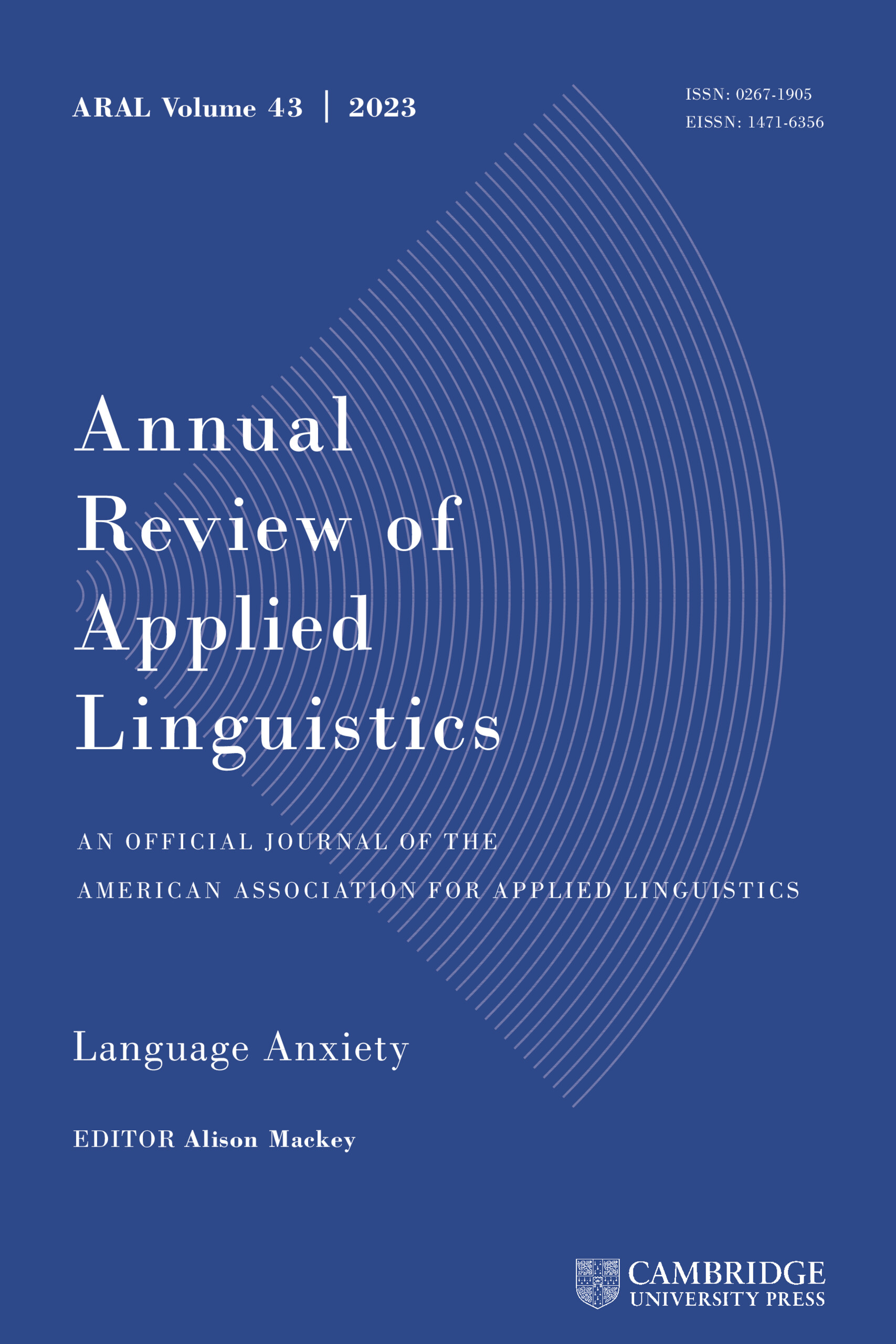Crossref Citations
This article has been cited by the following publications. This list is generated based on data provided by
Crossref.
Walsh, Michael
2005.
WILL INDIGENOUS LANGUAGES SURVIVE?.
Annual Review of Anthropology,
Vol. 34,
Issue. 1,
p.
293.
Meek, Barbra A.
2007.
Framing Indigenous Languages as Secondary to Matrix Languages.
Anthropology & Education Quarterly,
Vol. 38,
Issue. 2,
p.
99.
Schreyer, Christine
and
Gordon, Louise
2007.
« Parcourir les sentiers de nos ancêtres ».
Anthropologie et Sociétés,
Vol. 31,
Issue. 1,
p.
143.
McCarty, Teresa L.
2008.
Can Schools Save Indigenous Languages?.
p.
161.
Warner, Natasha
Luna, Quirina
Butler, Lynnika
and
van Volkinburg, Heather
2009.
Revitalization in a scattered language community: problems and methods from the perspective of Mutsun language revitalization.
International Journal of the Sociology of Language,
Vol. 2009,
Issue. 198,
Ferguson, Jenanne
2010.
Shäwthän Dän, Shäwthän Kwänjè: good people, good words: creating adän k'èspeech community in an elementary school.
Current Issues in Language Planning,
Vol. 11,
Issue. 2,
p.
152.
Chelliah, Shobhana L.
and
de Reuse, Willem J.
2010.
Handbook of Descriptive Linguistic Fieldwork.
p.
139.
Cope, Lida
2011.
From ethnocultural pride to promoting the Texas Czech vernacular: current maintenance efforts and unexplored possibilities.
Language and Education,
Vol. 25,
Issue. 4,
p.
361.
McCarty, Teresa L.
2012.
The Encyclopedia of Applied Linguistics.
Leung, Genevieve
2012.
ContemporaryHoisan-waLanguage Maintenance in Northern California: Evidence From Fourteen Frog Story Narratives.
International Multilingual Research Journal,
Vol. 6,
Issue. 2,
p.
104.
Costa, James
2013.
Language endangerment and revitalisation as elements of regimes of truth: shifting terminology to shift perspective.
Journal of Multilingual and Multicultural Development,
Vol. 34,
Issue. 4,
p.
317.
Snyder-Frey, Alicia
2013.
He kuleana kō kākou: Hawaiian-language learners and the construction of (alter)native identities.
Current Issues in Language Planning,
Vol. 14,
Issue. 2,
p.
231.
Cohen, Erik
and
Allen, Ann
2013.
Toward an Ideal Democracy.
Educational Policy,
Vol. 27,
Issue. 5,
p.
743.
Heidemann, Kai A.
2014.
In the Name of Language: School-Based Language Revitalization, Strategic Solidarities, and State Power in the French Basque Country.
Journal of Language, Identity & Education,
Vol. 13,
Issue. 1,
p.
53.
Cooper, Audrey C.
and
Nguyễn, Trần Thủy Tiên
2015.
Signed Language Community‐Researcher Collaboration inViệtNam: Challenging Language Ideologies, Creating Social Change.
Journal of Linguistic Anthropology,
Vol. 25,
Issue. 2,
p.
105.
Albury, Nathan John
2015.
Objectives at the crossroads: Critical theory and self-determination in indigenous language revitalization.
Critical Inquiry in Language Studies,
Vol. 12,
Issue. 4,
p.
256.
Albury, Nathan John
2016.
Defining Māori language revitalisation: A project in folk linguistics.
Journal of Sociolinguistics,
Vol. 20,
Issue. 3,
p.
287.
Vargas García, Itzel
2017.
Experiencias de un proyecto de revitalización lingüística del hñähñu (otomí) del Valle del Mezquital, Hidalgo: de actores, discursos y prácticas.
Zeitschrift für romanische Philologie,
Vol. 133,
Issue. 4,
p.
1064.
Albury, Nathan John
2017.
The power of folk linguistic knowledge in language policy.
Language Policy,
Vol. 16,
Issue. 2,
p.
209.
Pietikäinen, Sari
Kelly-Holmes, Helen
and
Rieder, Maria
2019.
The Palgrave Handbook of Minority Languages and Communities.
p.
287.


